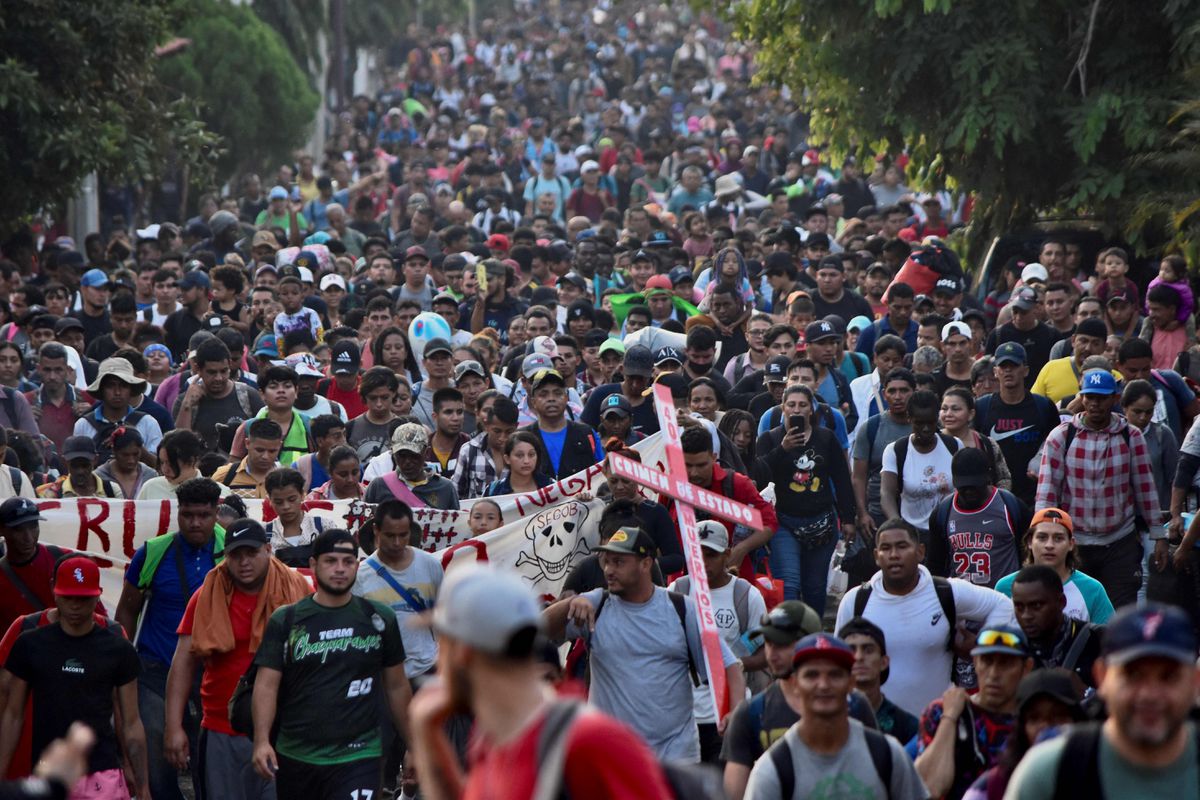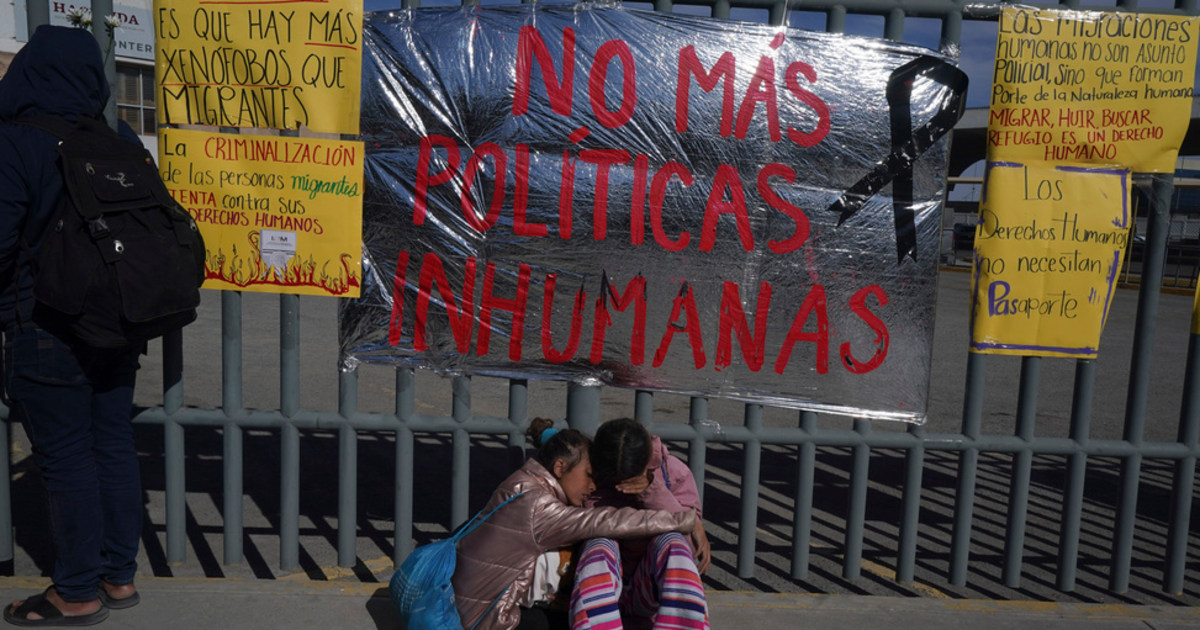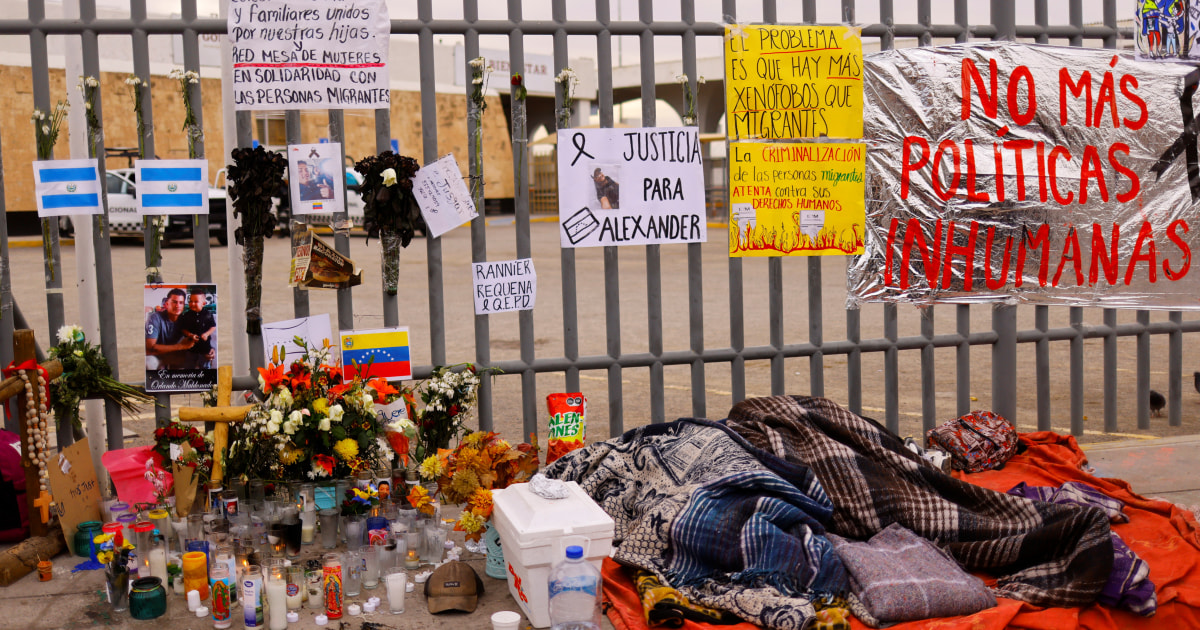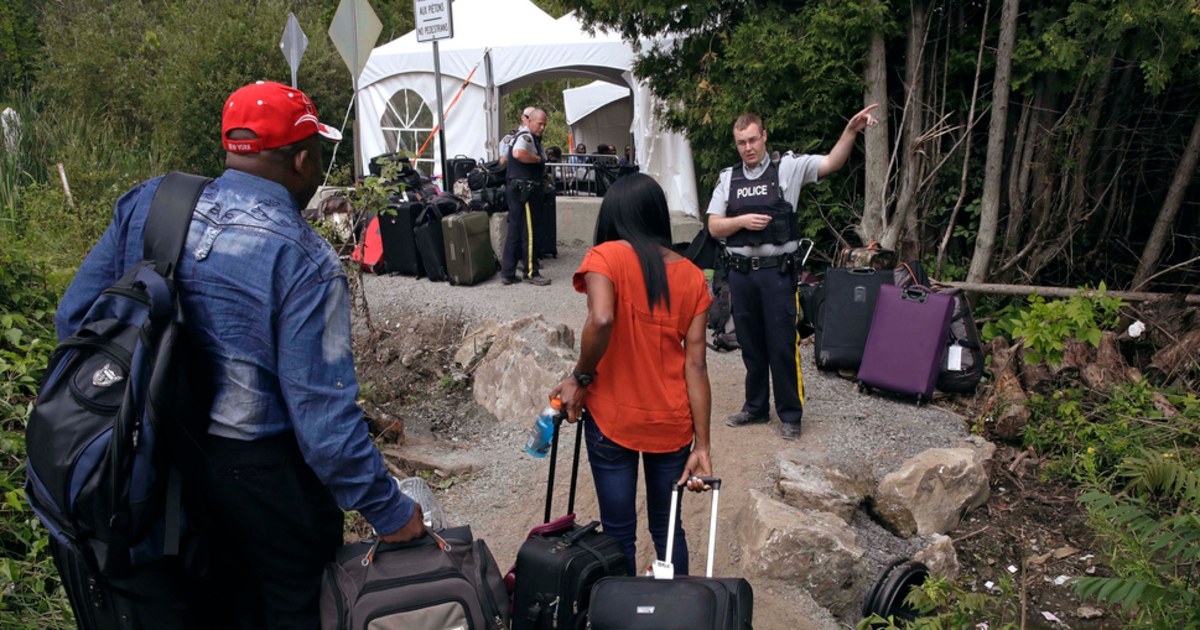Migrants walk in a caravan in Tapachula, Chiapas, on April 23. STRINGER (AFP)
Alexis and Armando, two Cubans who began their journey from the island six months ago in a small boat in the middle of the dark at night, had been trapped in Tapachula, on the southern border of Mexico, for almost a month.
After crossing four countries, they ended up sleeping in parks and city squares hoping for the promise of receiving a humanitarian visa to cross Mexico legally without having to face any more risks.
Until today.
This Sunday, April 23, they have had enough of waiting.
They have packed their clothes, their documents and two bottles of water each and have decided to leave hoping that no checkpoint will stop them on the way.
To boot, they have put their hopes in something big: the almost 3,000 more migrants who accompany them in the last caravan to leave the city that kept them trapped.
Around six in the morning, hundreds of migrants began to gather in the Bicentennial Park, in the center of Tapachula.
Half an hour later, thousands of people were already marching north, celebrating and challenging the government of Manuel Andrés López Obrador to stop them.
A common practice within the controversial contention policy of the Morena government with the National Guard on the front line.
This caravan, although it is similar to others that have preceded it, is preceded by the death a month ago of 40 migrants in a fire at a government center in Ciudad Juárez, under the gaze of immigration agents who did nothing to free them. despite the flames
The march, called Viacrucis Migrante, is led by migrants holding banners about that latest tragedy, which occurred on March 27.
“The State killed them”, says one of the banners or “You can deny it, but you can't hide it.
Because we all know it: It is a State crime, ”she reads another poster.
Like Alexis and Armando, the Cubans, thousands of migrants have celebrated the triumph of leaving the city that has kept them trapped with bureaucratic procedures and has prevented them from continuing on their way to the United States under the threat of capture and deportation to their country of origin if They leave the State of Chiapas.
Tapachula, as many civil organizations have denounced, is a kind of open-air prison for tens of thousands of migrants who find themselves trapped in it once they enter the southern border of Mexico.
"Thank you, but we're leaving.
We never wanted to be here”, some migrants have shouted.
Jonh, a 25-year-old Haitian native of Port-au-Prince, the capital of Haiti, celebrates the caravan's first triumph by shouting along with his fellow Central American travelers who were jumping and cheering after passing the first immigration checkpoint on the route, located under the Viva Mexico bridge.
“And what am I going to do in Tapachula?” asks Jonh, who has been trapped in the city for a month.
Usually, at the Viva México immigration point, migrants are detained when they travel in small groups.
This Sunday, the post has been closed and without the presence of immigration agents.
In the place there was only the presence of the State Police, Civil Protection and humanitarian organizations such as UNICEF.
The caravan is led by Irineo Mujica, an activist in defense of the rights of migrants with more than 20 years of experience.
At the beginning of the march, Mujica said that Tapachula is a city that keeps migrants "prisoners" and has demanded the elimination of the National Institute of Migration (Inami) and the jails or detention centers where migrants are housed before be deported
Migrants rest on the outskirts of Tapachula. Edgar H. Clemente (AP)
Marco, a young Honduran man, also celebrated Tapachula's departure: “We're leaving!
They don't stop us anymore!"
Marco had been trapped in the border city for two months along with two of his friends, all from San Pedro Sula, in the north of the country.
“A month ago they detained me here and sent me to the Honduran border with Guatemala.
From there we had to return and they assaulted us”, he says.
The three assure that, after the assault, they had to sleep on the sidewalks of the streets surrounding the central park of the city, Miguel Hidalgo.
And to eat, they had to beg.
Epicenter of the migration crisis
Since 2019, Tapachula has become the epicenter of a humanitarian crisis in southern Mexico.
The program called Stay in Mexico, which in theory proposes a Mexico with open doors for migrants who want to process their refugee status, is in practice a retentive policy that keeps tens of thousands of migrants trapped.
Although a good part of the caravan is made up of Hondurans, it is not only Central Americans who travel.
Tapachula has also become the epicenter of a new migration from South America, the Caribbean and even Asia and Africa.
The thousands of migrants that make up the caravan stopped to rest at noon this Sunday in the Álvaro Obregón ejido, still within the jurisdiction of Tapachula, just 16 kilometers away from where they started.
Although many still do not measure it, they still have more than 1,100 kilometers to go.
At least about 14 more days.
The caravan symbolizes a break with the "trap" that the city has become and that keeps thousands of migrants detained in inhumane conditions.
Local activists estimate that there are approximately 40,000 migrants stuck in the city.
Many of them are still waiting for the results of their process requesting a humanitarian visa or refugee status that will allow them to cross the country.
Others have decided to make a living in that place, opting for jobs with starvation wages of around 100 pesos a day (about five dollars).
Despite the massive departure this Sunday, Tapachula is still full of waiting migrants.
Meanwhile, this group is advancing slowly towards Mexico City where they hope to demand greater agility to process their humanitarian documents.
Lying on a basketball court in the park of the Álvaro Obregón ejido, where the caravan will rest tonight until its next departure, at dawn tomorrow, Alexis reflects on the road and on its possible setback.
“It doesn't matter to walk until we die.
Or even stay here.
Anything but going back,” he says.
subscribe here
to the
EL PAÍS México
newsletter and receive all the key information on current affairs in this country




/cloudfront-eu-central-1.images.arcpublishing.com/prisa/NEGYGNMGUJHJ3HCV3J22OXOYZQ.jpg)



/cloudfront-eu-central-1.images.arcpublishing.com/prisa/U47VQFQW4FGCBFYMTUPCMC5PKE.jpg)
/cloudfront-eu-central-1.images.arcpublishing.com/prisa/U45D3HQVB5DETFHEUOSH6QGU6A.jpg)